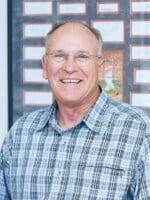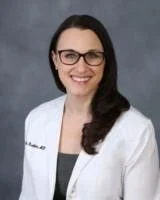Two local doctors are working with an independent provider to increase contact time
Krysten Godfrey Maddocks, NH Business Review
Nick Vailas
While Elliot Hospital does its best to anticipate community needs through its network of providers, entrepreneur and health care business owner Nick Vailas says it’s time to revisit how Greater Manchester provides health care.
Whether primary care providers are working at nonprofit or for-profit hospitals, their patients are being rushed through the system and they are feeling more burnt out than ever.
The average patient spends 13 minutes with their primary care provider and will wait 20 days on average for an appointment. On average, a primary care provider is responsible for seeing up to 20 patients a day and managing a patient panel of about 2,000 people, he says.
“The fundamental problem with health care today is that people don’t have a personal relationship with their physician,” Vailas says. “There may be exceptions with mid-level providers, but many of us years ago were able to and we’re lucky.”
Not only is access to primary care limited, but Vailas says the lack of patient advocacy health care systems offer is making health care more confusing, complicated and expensive for patients. Spouses and other family members must advocate for their loved ones, who are often too sick to understand their options.
“You’re running in the dark because health care is a maze. It’s complicated,” he says.
While mid-level practitioners like physician assistants or nurse practitioners help expand health care access, they don’t necessarily make routine care more affordable.
Dr. Jennifer Fishbein
“If your doctor is employed by a large hospital system, guess what? You end up in the most expensive alternative, which is a hospital system for routine diagnostics and care,” Vailas says. “The cost differential is huge. The leading cause of bankruptcy today is health care debt.”
Vailas opened Delphi Enhanced Primary Care in July 2024. Modeled after traditional health care systems, Delphi emphasizes personal relationships with the two doctors it employs as an alternative to hospital-owned practices. For a $120 monthly fee, patients can see Dr. Jennifer Fishbein or Dr. Jeffrey Calegari in Bedford on the same day or the next day. The fee works like a membership fee and does not cover the cost of patient visits. The practice bills for services just like any other practice.
Dr. Jeffrey Calegari
Under the Delphi model, Vailas aims to cap each of his physician’s patient panels at 600 to ensure access. The program is already financially successful, and he’s already looking to expand. He’s also reaching out to employers, who might be able to save money on employee health insurance programs by partnering with Delphi.
“There’s a ton of research that shows that even though the employer may be paying the access fee, employees will cost you less, especially if you’re self-insured,” he says.
What Delphi offers is access, advocacy and cost transparency. Staff members work with patients to help navigate them through the system and make recommendations based on need, coverage, and cost. Most people don’t even know what their insurance covers, which makes it particularly challenging for patients who have high-deductible health care plans, Vailas says.
“We cripple people who are already on fixed incomes. To me it’s wrong, because the system is blind. And then you go in blindly through a financial minefield where you could pay a $70 lab fee or a $500 lab fee for the same lab,” he says. “Since we’re independent, no one is trying to coerce our physicians to choose the higher cost alternative. Physicians who work for large health care systems have no idea what the price points are, nor do they concern themselves with it. They just want to treat their patients and keep them within the system.”
Vailas owns several ancillary health practices in New Hampshire. He owns six Apple Therapy Services locations, Nashua Ambulatory Surgical Center, and Orchard Surgical Center in Salem; as well as BASC Imaging in Bedford and Orchard Imaging in Salem. He calls these practices part of the “Vailas health care network” and says they have “far lower” price points than competing hospital entities.
It’s hard to know how or whether HCA’s acquisition of CMC will affect access to care in Greater Manchester, Vailas says, because there’s already been what he calls “an exodus” of primary care in the community. He does not believe that HCA’s for-profit status necessarily matters.
“The research shows there is no difference in the amount of charity care being done or any greater benevolence when you’re for-profit vs. nonprofit,” he says. “There’s a lot going on. That’s why I love what we’re doing. We can help people who are sick. We can help save them money. And most importantly, we can give them a doctor who they know and can have a relationship with.”
This story is part of Critical Condition: What hospital consolidation means for care, access, and your community, a special series co-produced by partners in the Granite State News Collaborative. These stories are being shared by media outlets across New Hampshire. We want to hear from you! Take our short survey at https://tinyurl.com/3au39uct about your healthcare experiences. For more information, visit collaborativenh.org.



